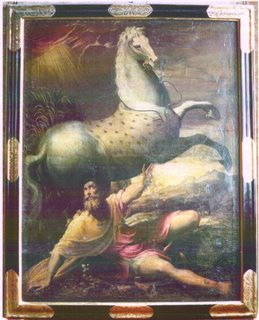I am beginning to see a pattern in each of the prolegomena's (introductions) of the Gospel records. Perhaps, I am really just behind the curve in my Biblical-theological analysis, and if so point in the way to more rich "nuggets" from reading the Bible 'biblical-theologically' or perhaps I should say "redemptive historically".
The pattern that I am beginning to see is just how significant the prolegomena's are to understanding the Author's purpose behind his entire record. I am still wrestling with the idea of Jesus being the "true Israel" and what that really means for the rest of my scriptural understanding (Kingdom, eschatological motifs etc.). John's Gospel seems to overwhelm me at this time with the notion of Jesus being the "true and complete Israel". This wrestling is only within the first few chapters of John's Gospel too! (Note: Matthew's agenda seems to be like minded with John only in a different manner)
Take a look at how I see the prolegomena and tell me if I am justified in this thought process (atleast perhaps somewhat?) or not.
(1:14-18) The particulars within the paragraph, in light of the whole context of the prolegomena, are (1) John's return to the use of "Word" as the desriptive of Jesus from 1:1 demonstrating redemptive historical continuity with the previous "word" from God to Israel, namely the Mosaic law; (2) the emphasis on God dwelling with the disciples in the flesh, which enabled them to actually see the glory of God unlike Moses who at Sinai was not allowed to see God (Ex. 33:20 cf. Jn1:18) and (3) the superiority of the grace of God made known in Jesus Christ as juxtaposed to the grace of God disclosed through the 'incomplete' mosaic legislation (Deut. 18:18-19 cf. Deut. 30:5-10).
The heart of the pericope seems to be that John wants his readers to know that Jesus exceeds and transcends all redemptive historical expectations of the Messiah. Jesus is not just an Israelite who can figuratively be adopted by God and called a Son, rather he is the true Israelite, the Son of God from the Father, full of grace and truth (Jn. 1:14).
Jesus the True Israel and implications thereof?


